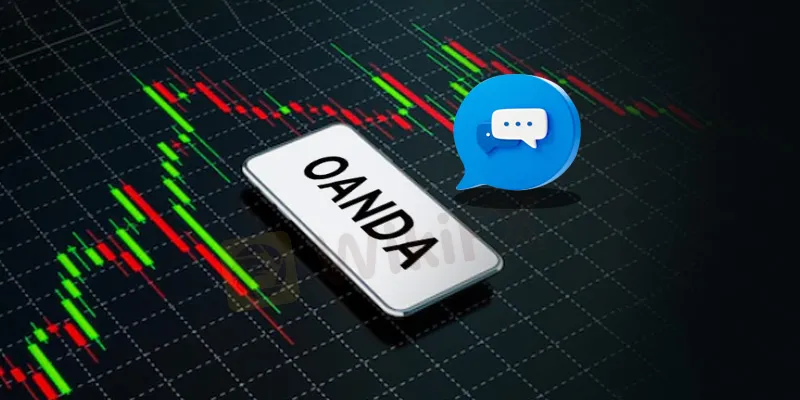简体中文
繁體中文
English
Pусский
日本語
ภาษาไทย
Tiếng Việt
Bahasa Indonesia
Español
हिन्दी
Filippiiniläinen
Français
Deutsch
Português
Türkçe
한국어
العربية
Clients Reviews: What Are Investors' Opinions of OANDA?
Abstract:Whether you prefer to trade stocks or currency trading appeals to you more, a prosperous trading journey involves choosing the right broker. A reliable broker doesn't always have to be strongly regulated. On the other hand, signing up with an offshore broker without regulatory oversight isn't recommended either. It's just that you need to be rational with broker selection. Sometimes, multi-regulated brokers like OANDA fail to meet clientele satisfaction.

Summary
OANDA Global Markets Ltd operates under the brand name of OANDA Corporation, founded in 1996. The group comprises several entities regulated in multiple jurisdictions around the world. With easy-to-use trading platforms, numerous account types, and a quality research department, the company claims to be one of the most competitive brokers in the industry. However, the broker is criticized for its slow withdrawal process, poor trading conditions, and high trading costs.
Is OANDA Regulated?
OANDA holds multiple regulations worldwide. Major regulators of the company include but are not limited to USA National Future Association (NFA), UK Financial Conduct Authority (FCA), Australian Securities and Investment Commission (ASIC), and Cyprus Securities and Exchange Commission (CySEC), Investment Industry Regulatory Organization of Canada (IIROC), British Virgin Islands Financial Services Commission (BVI-FSC) and Malta Financial Services Authority (MFSA) .

Clients Feedback
OANDA is mostly reported for withdrawal problems. However, clients have also denounced the company for worsened trading conditions and slow customer support. Some clients even perceive the company to be a dealing desk broker.

According to OANDA clients, the brokerage manipulates their orders before passing them to the market. Investors also accuse the company of not providing flexible charting time frames and advanced technical indicators. Other complaints include widened spreads, no negative balance protection, guaranteed stop-loss, etc.

Has OANDA Ever Been Red Listed by Regulators?
Malaysian Regulators once warned OANDA for providing trading activities without its approval. The company sometimes faces non-compliance issues as well. For instance, OANDA was penalized for $200,000 after NFA found the company in breach of conduct. According to the authority's press release dated April 01, 2021, the company failed to report accurate forex daily activities to the NFA.
Further, OANDA personnel did not adhere to the process and failed to notify OANDA's AML Compliance Officer after one of its customer's accounts got hacked.

Disclaimer:
The views in this article only represent the author's personal views, and do not constitute investment advice on this platform. This platform does not guarantee the accuracy, completeness and timeliness of the information in the article, and will not be liable for any loss caused by the use of or reliance on the information in the article.
Read more

Investing Capital in Focus as Complaints on Withdrawal and Other Issues Mount
Explore this guide we have exposed Investing Capital, which has mounted concerns for traders by disallowing withdrawals and making them lose their hard-earned money.

4 Warning Signs That Indicate You May Get Scammed in Your Forex Investments
In this blog, we will share with you a guide telling you about the tactics fraudsters employ to dupe investors.

Global Brokers Vs. Indian Rules: Why They Struggle in India
RBI issued a warning last year against 75 forex brokers. Those brokers are globally popular and regulated in other countries, but they are banned in India. Only few brokers even have physical offices located in India. So, why do global brokers face so many challenges in entering the Indian market?

Aetos: A Closer Look at Its Licenses
With multiple regulatory entries and one license now revoked, Aetos stands as a broker requiring closer scrutiny from investors, particularly those prioritizing license scope and jurisdictional compliance.
WikiFX Broker
Latest News
Tokenized Stocks: Innovation or Just Another Wrapper?
Gold Rush Again: What's Driving the Bullion Market Crazy Ahead of US Jobs Data?
XTB Launches Tax-Advantaged Retirement Accounts in Poland
Zaffex Broker Review
ECB Ends Easing Cycle, But The Eurozone Crisis Is Just Beginning
Amazon deploys its 1 millionth robot in a sign of more job automation
MT4 and MT5 Platforms - Helping Traders Up Their Forex Trading Game
A bare-bones deal is Europe's best hope in trade talks with the U.S., sources say
10-year Treasury yield remains higher despite weak ADP jobs report
Blueberry Markets Revamps its Website
Currency Calculator


